Matcha is a form of green tea that may benefit heart health, weight control, and other aspects of well-being because of its antioxidant-rich makeup. It’s also simple to add into your daily meals and drinks.
What is matcha?
Matcha has become trendy in health shops and cafés, appearing as matcha shots, lattes, teas, and desserts.

Like other green teas, matcha is derived from the Camellia sinensis plant. Yet its cultivation and nutrient profile differ from typical green tea.
Plants destined to become matcha are shaded for much of their growth. Reduced sunlight boosts chlorophyll synthesis, raises amino acid levels, and gives the leaves a deeper green color.
Once harvested, producers strip away stems and veins and mill the leaves into a very fine powder — that powder is matcha.
Because you consume the whole leaf, matcha delivers more of the leaf’s nutrients, including greater concentrations of caffeine and antioxidants than many green tea infusions.
Research into matcha and its constituents has revealed several potential advantages, such as liver protection, cardiovascular benefits, and possible support for weight loss.
Below are seven potential health benefits and perks of adding matcha to your routine.
1. High in antioxidants
Matcha is loaded with catechins, a group of plant-based compounds in tea that function as natural antioxidants.
Antioxidants neutralize damaging free radicals, molecules that can harm cells and contribute to chronic illnesses.
Because matcha plants are shaded, harvested leaves originally have lower catechin levels than some other green teas. However, when the powdered leaf is dissolved in water, it yields roughly three times the antioxidants.
In one animal study, mice given matcha supplements showed reduced free radical damage and increased antioxidant activity.
Including matcha in your eating pattern may raise your intake of antioxidants, which could help limit cell damage and lower the risk of chronic diseases.
SUMMARYMatcha is rich in antioxidants, which may help reduce cellular damage and decrease the risk of chronic disease.
2. May help protect the liver
The liver is essential for good health, handling toxin removal, drug metabolism, and processing nutrients.
Some research indicates matcha may support liver health.
A 2015 review that examined 15 studies found an association between drinking green tea and a reduced risk of liver disease.
However, in 2020 some experts cautioned that while matcha might lower liver enzymes in people with nonalcoholic fatty liver disease (NAFLD), it could raise liver enzymes in those without NAFLD.
Further research is required to determine matcha’s effects across the general population since much of the evidence comes from animal studies of green tea extract.
SUMMARYSome studies suggest matcha could help prevent liver damage and reduce the risk of liver disease, but more human research is needed.
3. Boosts brain function
Research indicates several matcha components may enhance aspects of brain function.
One trial involving 23 participants tested performance on tasks designed to assess cognitive function.
Some volunteers drank matcha tea or ate a bar containing 4 grams of matcha, while the control group received a placebo beverage or bar.
Those who consumed matcha experienced improvements in attention, reaction times, and memory compared with the placebo group.
Another small trial found that taking 2 grams of green tea powder daily for 2 months improved cognitive function in older adults.
Matcha generally has higher caffeine than steeped green tea. Depending on variety and processing, green tea typically contains about 11–25 milligrams per gram (mg/g), while matcha has roughly 19–44 mg/g.
Matcha also includes L-theanine, an amino acid that modifies caffeine’s effects by promoting alertness and helping to prevent the energy slump that can follow caffeine intake.
How else might matcha sharpen focus and energy?
SUMMARYMatcha has been shown to improve attention, memory, and reaction time. Its caffeine and L-theanine content can enhance several cognitive functions.
4. May help prevent cancer
Matcha contains compounds linked to cancer prevention in laboratory and animal research.
Notably, matcha is rich in epigallocatechin-3-gallate (EGCG), a catechin that may possess potent anti-cancer effects.
Some in vitro and animal studies suggest EGCG may help inhibit certain types of cancer, though more investigation is required.
SUMMARYLaboratory and animal evidence indicates matcha’s compounds may slow the growth of cancer cells.
5. May promote heart health
Evidence suggests drinking green tea — which shares many nutrients with matcha — may help protect against cardiovascular disease.
Green tea intake has been associated with a reduced risk of heart disease and, in some studies, with lower rates of high blood pressure and related complications.
Since matcha contains similar compounds, it likely offers comparable cardiovascular benefits, although at least one animal study has reported conflicting results.
SUMMARYResearch indicates green tea and matcha may reduce several risk factors for heart disease.
6. Helps you lose weight
Green tea is widely recognized for supporting weight loss and is a common ingredient in slimming supplements.
A 2020 review concluded that, combined with diet and exercise, up to 500 mg per day of green tea over 12 weeks might lower body mass index.
Although most trials focus on green tea, matcha comes from the same plant and contains comparable bioactive compounds.
SUMMARYSome research shows green tea extract increases metabolism and fat oxidation, which may support weight loss.
7. Matcha tea is easy to prepare
There are several ways to enjoy matcha.
To make traditional matcha tea, sift 1–2 teaspoons (2–4 grams) of matcha powder into your cup, add about 2 ounces (59 ml) of hot water, and whisk with a bamboo whisk.
You can alter the matcha-to-water ratio depending on how strong you like it.
For a lighter tea, use half a teaspoon (1 g) of powder and mix with 3–4 ounces (89–118 ml) of hot water.
For a concentrated shot, blend 2 teaspoons (4 g) of powder with only 1 ounce (30 ml) of water.
Other ideas include:
- mixing matcha with turmeric in tea or a latte
- stirring it into milk-based dishes and beverages, such as lattes or rice pudding
- using it in sweets like matcha ice cream or cookies
If you’re inventive, try adding matcha to protein smoothies to increase nutritional value in your favorite recipes.
SUMMARYMatcha is versatile and easy to prepare, and it works well in a wide array of recipes.
Side effects and risks
Despite its potential advantages, matcha should be consumed in moderation.
Matcha contains more caffeine than steeped green tea. While moderate caffeine can be helpful for some, excessive intake may cause side effects such as an elevated heart rate (, 13).
Some researchers warn that very high catechin intake could harm the liver, although this is unlikely when green tea is taken as a beverage or food.
Consuming matcha could also increase exposure to contaminants like pesticides, industrial chemicals, or soil-borne arsenic depending on where and how the plants are grown.
Studies suggest up to 338 mg of catechins and EGCG per day is safe for adults — roughly the amount found in about 4 g of matcha, or two level teaspoons.
Individual tolerance varies, so it’s wise to consume matcha in sensible amounts.
Choosing certified organic matcha can help reduce the likelihood of exposure to impurities.
SummaryLarge amounts of matcha may not be suitable for everyone. Opt for organic varieties and limit intake to about 1–2 cups per day for best results.
Frequently asked questions
Does matcha have caffeine?
Yes. Matcha contains caffeine because it is made from green tea leaves, which naturally include caffeine.
Does matcha make you poop?
Matcha can prompt a bowel movement for some people shortly after drinking it. Its caffeine content may stimulate the digestive tract similarly to coffee (18).
What does matcha taste like?
Matcha is often described as mildly sweet, grassy, and earthy. Others detect umami notes with slight bitterness.
What flavors and foods pair well with matcha?
Matcha complements many flavors and dishes. Popular pairings include:
- chocolate — both white and milk chocolate
- mochi
- fruits:
- banana
- berries
- citrus
- mint
- honey
- coconut
- savoury items:
- tahini
- mushrooms
- black sesame seeds
What does matcha tea do to you?
Matcha may support weight management, sharpen cognition, and lower disease risk thanks to its antioxidant content. Nonetheless, more high-quality research is required to confirm many of these effects.
Does matcha burn belly fat?
Some evidence suggests that including green tea as part of a weight-control program — along with exercise and dietary changes — may help reduce BMI and waist size.
Is it good to drink matcha tea every day?
You can drink matcha daily, but keep in mind its caffeine content and potential traces of pesticides or other contaminants. Beneficial catechins may be harmful if consumed in excess. Moderation is recommended — approximately 1–2 cups of matcha tea per day or up to 2 teaspoons of powder.
The bottom line
Matcha is produced from the same plant as green tea, but because you consume the whole leaf it contains more concentrated antioxidants and phytonutrients.
It may offer multiple health benefits, from aiding weight management to reducing cardiovascular risk.
It’s also easy to prepare as a tea and can be added to shakes, desserts, lattes, and many other recipes.

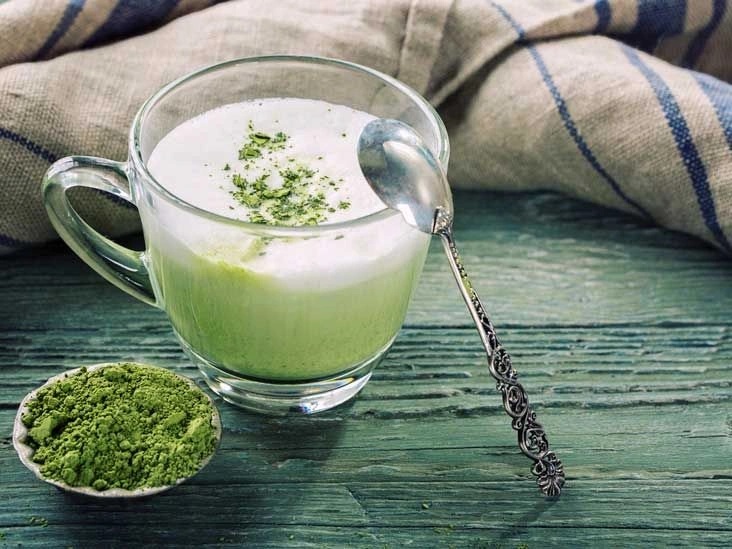
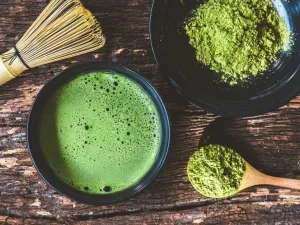
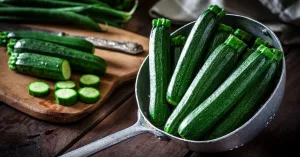
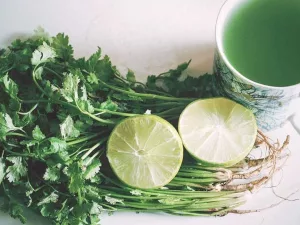


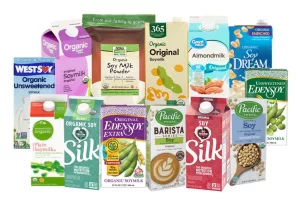


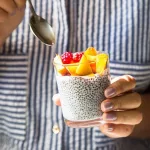






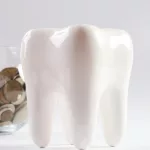


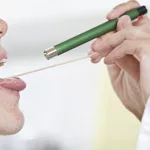



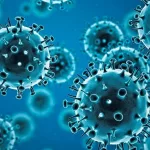
Leave a Reply
You must be logged in to post a comment.